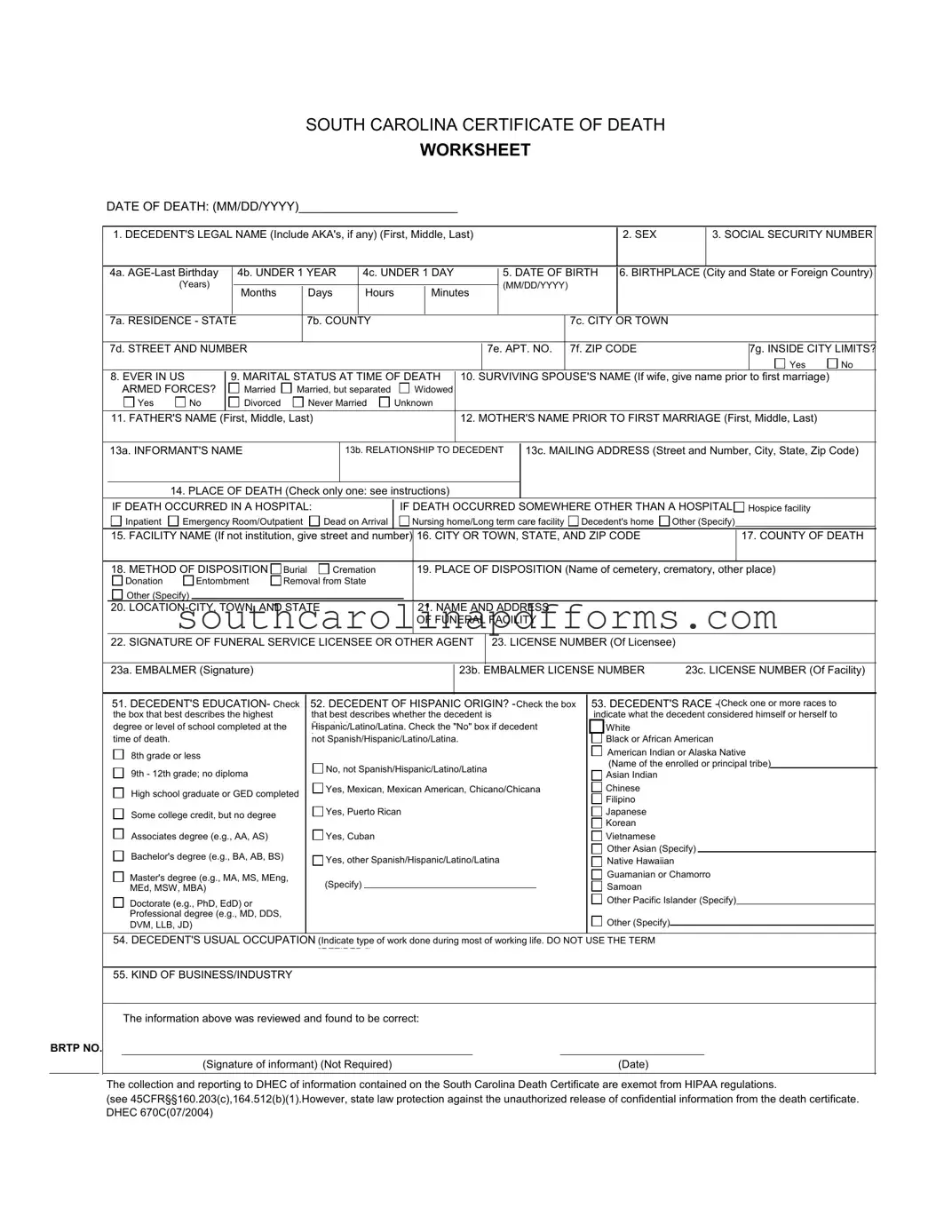The DHEC 670C form is an essential document used in South Carolina to officially record the details surrounding a person's death. This form collects a variety of important information, including the decedent's legal name, age, date of birth, and social security number. It also captures details about the decedent's residence, marital status, and surviving spouse, if applicable. In addition, the form requires information about the place of death, whether it occurred in a hospital or elsewhere, and the method of disposition, such as burial or cremation. Funeral facilities play a significant role in this process, as they must provide their name and license number on the form. The DHEC 670C also addresses the decedent's educational background and ethnic identity, allowing for a comprehensive understanding of the individual. This form is crucial not only for record-keeping but also for ensuring that the information is accurately reported to the Department of Health and Environmental Control (DHEC), which is exempt from certain privacy regulations under HIPAA. By gathering this information, the DHEC 670C helps facilitate the necessary legal and administrative processes following a death.
